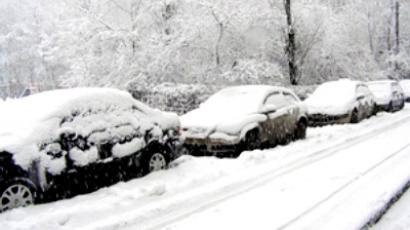Public health concerns rise along US Gulf Coast
What can go wrong will go wrong. Such is the case for the Gulf Coast and the unending saga of the BP oil spill that’s now in its eleventh week.
Winds from Hurricane Alex are pushing tar balls as large as apples onto Gulf Coast beaches. This has stopped cleanup efforts momentarily and even undone some of the spill control.
As one marine scientist put it, “We lost all the progress we made.”
The town of Venice is about the most southeast point you can get in the entire state of Louisiana.
About a hundred miles from the Venice Marina you can start seeing the first signs of the oil from the catastrophic BP oil spill. And then, about 20 miles from there, you can see the booms in place to make sure the oil doesn’t float further inland – especially in a marina like the Venice Marina where there are a lot of people who live and work.
But the people of Venice have been seeing little bits of oil anyway.
The environmental catastrophe, economic ramifications and the political drama playing out in Washington as a result of the spill are common news stories. The public health concerns however are starting to surface, especially with the people who live and work along the coast.
For example, a man like Eric Surber, a satellite installer:
"I'm originally out of Baton Rouge. So, when I came down here, it was my first time down here. I'd heard about the smell. When I got down here, I didn't notice the smell too bad but I just started getting this headache. And I was talking to one of the EPA guys and he said a lot of people down here are getting sick. He's had a headache for two weeks since he's been down here."
The big concern now is for things that might be contaminating the air –contaminants like hydrogen sulfide. According to environmental and public health groups there is much more hydrogen sulfide in the air than there should be. On some days, the level of hydrogen sulfides in the air reached more than 700 times acceptable levels.
Another concern of public health and environmental groups are "volatile organic compounds" (VOCs) like benzene and methylene chloride. According to the state of Louisiana, about 4 parts per billion of benzene in the air and about 60 parts per billion of methyl chloride are standard in the air. However, the level of VOCs in the air has reached hundreds of times the acceptable levels.
It’s interesting and also disturbing to note just how far inland the airborne contaminants may be reaching. The Venice Marina is about 75 miles southeast of the city of New Orleans. The town of Hammond is about 135 miles away.
"The surprise for me was when we actually got calls from New Orleans and then from Hammond which is the north shore. I personally was very surprised to have air quality calls come all the way up from New Orleans," said Marylee Orr of the Louisiana Environmental Action Network.
The contaminants are coming from either the oil itself, the burning of the oil to help clean it up, or the dispersants that are being used to capture the oil.
With each source, there's a laundry list of symptoms somebody might be going through as a result. They include:
- headaches
- nausea
- vomiting
- diarrhea
- abdominal pains
- dizziness
- respiratory problems
But the concern public health officials, public health experts, and environmental groups have isn't just the short-term effects. It's also the long-term effects.
"You can have cardiac issues. You can have neurotoxic issues. Cardiac arrhythmia is one of the things that can happen to you. The birth defects issue – effects your reproductive organs," said Orr.













